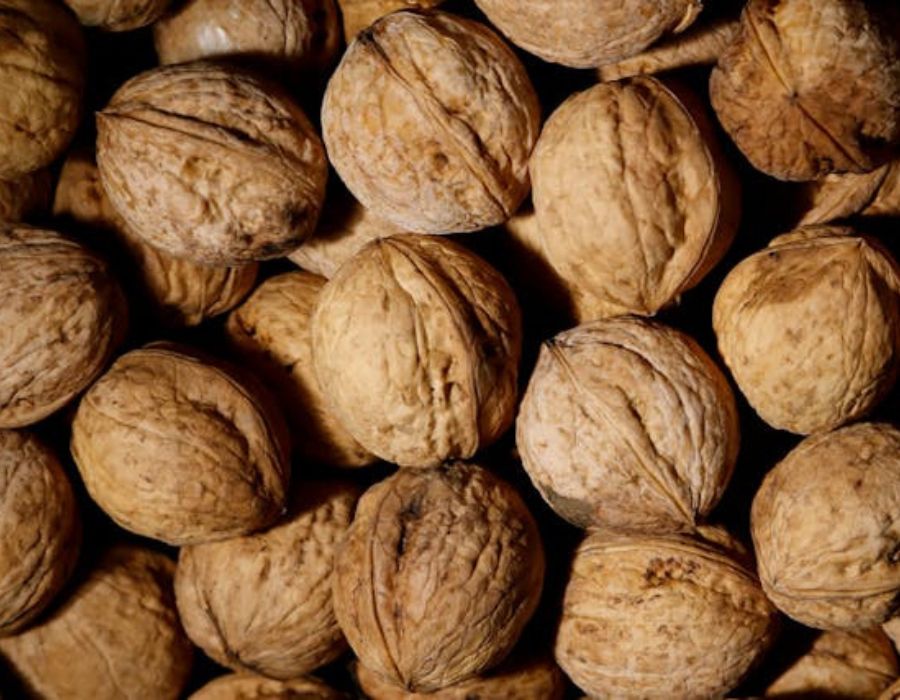Are you tired of suffering from knee pain? Fear not—a solution might be in your kitchen pantry.
Yes, that’s right – certain foods can alleviate knee pain and improve your overall joint health.
But which ones should you be adding to your plate?
In this discussion, we will unveil the best foods that can help combat knee pain, providing relief and a renewed sense of mobility.
So, discover the natural remedies that will get you back on your feet quickly.
You may also be interested in the following products:

What You Will Learn In This Post:
- 1 Key Takeaways
- 2 Anti-Inflammatory Foods
- 3 Omega-3 Rich Foods
- 4 Vitamin C Sources
- 5 Calcium and Vitamin D-rich Foods
- 6 Antioxidant-Packed Foods
- 7 Frequently Asked Questions
- 7.1 What Other Lifestyle Changes Can Help Alleviate Knee Pain Besides Incorporating Anti-Inflammatory Foods Into Your Diet?
- 7.2 Can Consuming Omega-3-Rich Foods Have Any Negative Side Effects for Individuals With Certain Health Conditions?
- 7.3 Are Any Specific Vitamin C Sources Particularly Effective in Reducing Knee Pain?
- 7.4 Are there any calcium- and vitamin D-rich foods that individuals with specific dietary restrictions should avoid?
- 7.5 How Do Antioxidant-Packed Foods Help in Reducing Knee Pain and Promoting Overall Joint Health?
- 8 Conclusion
Key Takeaways
- Add anti-inflammatory foods such as berries, leafy greens, turmeric, and ginger to your meals.
- Include omega-3-rich foods like flaxseeds, chia seeds, walnuts, and fish oil supplements to reduce inflammation and improve joint health.
- Get enough vitamin C from citrus, other fruits, and vegetables to promote tissue repair and support joint health.
- Consume calcium and vitamin D-rich foods like fortified dairy products, leafy greens, and fortified cereals to support bone health and reduce the risk of knee pain.
Anti-Inflammatory Foods

Incorporate anti-inflammatory foods into your diet to help reduce knee pain and promote joint health.
One practical approach to managing knee pain is to include plant-based remedies and herbal supplements in daily meals.
These natural sources of anti-inflammatory compounds can provide relief and support the overall health of your joints.
Certain fruits and vegetables are famous for their anti-inflammatory properties.
Berries, such as strawberries and blueberries, are rich in antioxidants that help fight inflammation.
Leafy greens like spinach and kale contain high levels of vitamins and minerals that support joint health.
Including these foods can provide a natural defence against knee pain.
In addition to fruits and vegetables, incorporating herbs and spices into your meals can be beneficial.
‘Turmeric, for example, contains a compound called curcumin, which has potent anti-inflammatory effects. Ginger is another herb that helps to reduce inflammation and alleviate pain.
Regarding herbal supplements, options like Boswellia, Devil’s Claw, and Willow Bark show promising results in reducing knee pain.
These supplements work by inhibiting specific enzymes that contribute to inflammation.
Omega-3 Rich Foods
Including omega-3-rich foods in your diet can play a crucial role in reducing knee pain and promoting joint health.
Omega-3 fatty acids are famous for their anti-inflammatory properties, which can help alleviate the symptoms of knee pain.
Here are some plant-based sources of omega-3s that you can incorporate into your daily meals:
- Flaxseeds: These tiny seeds contain omega-3 fatty acids, fibre, and antioxidants. You can add ground flaxseeds to smoothies and yoghurt or sprinkle them over salads or oatmeal.
- Chia seeds: Similar to flaxseeds, chia seeds are an excellent source of omega-3s. You should soak them in water or plant-based milk to create a gel-like consistency, which can be a base for puddings or added to baked goods.
- Walnuts: Walnuts aren’t only a delicious snack and a great source of omega-3 fatty acids. Enjoy or add them to your salads, stir-fries, or baked goods for an extra crunch.
In addition to incorporating these plant-based sources of omega-3s into your diet, you may also consider taking fish oil supplements.
Fish oil is rich in omega-3 fatty acids, particularly EPA and DHA, which have been shown to reduce inflammation and improve joint health.
However, consulting with your healthcare provider before starting any supplements is essential.
Vitamin C Sources

Including vitamin C-rich foods to support your knee health and alleviate pain is essential.
Vitamin C, also known as ascorbic acid, is an essential nutrient that plays a crucial role in forming and maintaining collagen, a key component of cartilage and connective tissues in the knee joint.
Consuming foods high in vitamin C can help reduce inflammation, promote tissue repair, and support overall joint health.
Citrus fruits such as oranges, lemons, and grapefruits are excellent sources of vitamin C.
They provide a refreshing burst of flavour and pack a punch of this vital nutrient.
Other fruits like strawberries, kiwi, and papaya are also rich in vitamin C.
Including these fruits in your daily diet can help ensure you get an adequate amount of this vital nutrient.
In addition to fruits, vegetables like bell peppers, broccoli, and kale are excellent vitamin C sources.
These vegetables provide high amounts of this nutrient and are packed with other beneficial vitamins and minerals that contribute to overall joint health.
While incorporating vitamin C-rich foods into your diet is ideal, some individuals may struggle to meet their daily requirements solely through food alone.
In such cases, vitamin C supplements may be beneficial.
However, it’s essential to consult with a healthcare professional before starting any supplementation regimen to ensure it’s appropriate for your needs.
Get Superfoods Packages Delivered Right To Your Door:

Calcium and Vitamin D-rich Foods
Consuming foods rich in calcium and vitamin D is crucial for maintaining strong and healthy knees.
These nutrients are vital in promoting bone health and reducing the risk of knee pain and related conditions.
Here are some calcium and vitamin D-rich foods that you should include in your diet:
- Fortified dairy products: Milk, cheese, and yoghurt are excellent sources of calcium and vitamin D. Opt for low-fat or skim varieties to keep your saturated fat intake in check. Look for fortified options that contain added vitamin D for an extra boost.
- Leafy greens: Spinach, kale, and collard greens are packed with vitamins and minerals and provide good calcium. They are also low in calories and antioxidants, making them a healthy choice for overall well-being.
- Fortified cereals: Some breakfast cereals are fortified with calcium and vitamin D, making them a convenient and tasty way to increase your intake of these nutrients. Look for whole-grain options that are low in sugar to ensure you’re getting the most nutritional benefit.
Incorporating these calcium and vitamin D-rich foods into your diet can help support your knee health and prevent the onset of knee pain.
Remember to consult with a healthcare professional or registered dietitian to determine the appropriate amount of these nutrients for your needs.
Antioxidant-Packed Foods

Boost your knee health by incorporating antioxidant-packed foods into your diet.
Antioxidants help protect your cells from damage caused by harmful molecules called free radicals.
They are crucial in reducing inflammation and oxidative stress, which contribute to knee pain.
Including antioxidant-rich foods can help alleviate knee pain and promote overall joint health.
Berries, such as strawberries, blueberries, and raspberries, are excellent sources of antioxidants. They contain anthocyanins, which can reduce inflammation and relieve pain.
You can easily incorporate these berries into your diet by adding them to smoothies, yoghurt, or oatmeal.
Dark leafy greens are another antioxidant-rich food.
Spinach, kale, and Swiss chard pack nutrients like vitamins A, C, and K and antioxidants like lutein and zeaxanthin.
These antioxidants help protect the joints from oxidative damage and reduce inflammation.
Dark leafy greens can be enjoyed in salads, stir-fries, or as a side dish.
Nuts and seeds, such as almonds, walnuts, and flaxseeds, are also excellent sources of antioxidants.
The vitamin E found in these foods has anti-inflammatory properties and promotes joint health.
Add nuts and seeds to your salads and oatmeal or enjoy them as a snack.
Incorporating antioxidant-packed foods into your diet is a natural and effective way to alleviate knee pain and promote joint health.
Try incorporating these foods into your meals and discover joint-friendly recipes to keep your knees healthy and pain-free.
You may also be interested in the following products:

Frequently Asked Questions
What Other Lifestyle Changes Can Help Alleviate Knee Pain Besides Incorporating Anti-Inflammatory Foods Into Your Diet?
To alleviate knee pain, consider making lifestyle changes and incorporating exercise routines.
These changes can help strengthen the muscles around your knees, improve flexibility, and reduce joint stress.
Can Consuming Omega-3-Rich Foods Have Any Negative Side Effects for Individuals With Certain Health Conditions?
Consuming excessive amounts of omega-3-rich foods may adversely affect specific health conditions.
It is essential to be aware of potential risks, such as increased bleeding in individuals taking blood thinners.
Are Any Specific Vitamin C Sources Particularly Effective in Reducing Knee Pain?
Vitamin C sources like citrus fruits and leafy greens can reduce knee pain.
These antioxidant-packed foods benefit joint health by reducing inflammation and promoting collagen synthesis.
Are there any calcium- and vitamin D-rich foods that individuals with specific dietary restrictions should avoid?
If you have dietary restrictions, it is essential to be cautious with calcium and vitamin D-rich foods.
Specific individuals may need to avoid dairy products, such as milk and cheese, which are high in these nutrients.
Additionally, some people with dietary restrictions may need to limit their intake of certain fish rich in omega-3 fatty acids due to the potential for mercury contamination.
It is always best to consult a healthcare professional or a registered dietitian to determine the best dietary approach for your needs.
How Do Antioxidant-Packed Foods Help in Reducing Knee Pain and Promoting Overall Joint Health?
Eating antioxidant-packed foods can help reduce knee pain and promote overall joint health.
These foods combat inflammation and oxidative stress in the body, which are both factors that contribute to joint pain and deterioration.
You may also be interested in the following products:

Conclusion
In conclusion, a diet rich in anti-inflammatory foods, omega-3 fatty acids, vitamin C sources, calcium, and vitamin D can help alleviate knee pain.
Furthermore, these foods can reduce inflammation, promote joint health, and provide essential nutrients for strong bones.
Individuals can improve their knee pain symptoms and enhance overall joint function by making simple dietary changes.
Consulting with a healthcare professional for personalized advice and guidance is essential.
